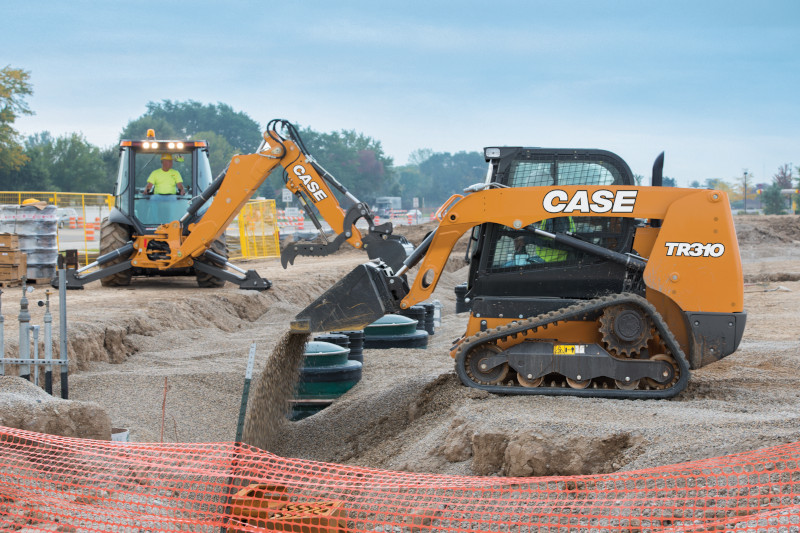If you’re about to start a construction project, one of the most crucial decisions you’ll make is selecting the appropriate heavy equipment. The right size equipment ensures efficiency, increases cost-effectiveness, and enhances safety on the job site. But how do you make sure you’re choosing correctly?
Choosing the right size heavy equipment is a key element for any construction job. By matching your gear to meet the specific demands of the project, you’ll save time and resources. Read on to explore specific factors to consider and common mistakes to avoid when selecting heavy equipment for your construction project, and make sure you’re fully equipped for success.
What Factors Should I Consider When Choosing Heavy Equipment for My Construction Project?
When it comes to choosing heavy equipment for your construction project, several crucial factors should influence your decision. One of the primary considerations is the type of work you’ll be doing. Are you excavating, lifting heavy materials, or grading terrain? Each task requires specific equipment tailored to its demands. Additionally, consider the scale of your project. A smaller job may not warrant the use of the really big gear, whereas larger-scale projects may require it. Don’t underestimate the size of the job. If you do, you’ll wind up overworked and behind schedule throughout the project, with little to show for it.
Another essential factor to consider is the terrain and working conditions of your construction site. Uneven terrain, tight spaces, or obstacles can all impact the type and size of equipment you need. For instance, if you’re working in a confined area, a compact excavator or skid steer loader might be more suitable than a larger bulldozer or excavator. Similarly, if your site has soft, muddy ground, you’ll need equipment with sufficient traction and stability to navigate safely.
A huge consideration will always be your allotted budget and the cost-effectiveness of your equipment choice. While it’s tempting to opt for the biggest and most powerful equipment available, it might not always be the most financially prudent decision. Consider rental or purchase costs, fuel consumption, maintenance expenses, and potential downtime due to repairs. Sometimes, a smaller or more specialized piece of equipment can get the job done just as effectively at a fraction of the cost.
By taking these factors into account, you’ll be better equipped to choose the right size heavy equipment for your construction project. Remember, it’s not just about having the biggest machines; it’s about having the right machines for the job at hand.
What Are the Most Common Sizes of Heavy Construction Equipment, and What Tasks Is Each Size Best Suited For?
In the world of heavy construction equipment, there’s a wide range of sizes available, each tailored to specific tasks and project requirements. Here’s a breakdown of some of the most common sizes and the tasks they excel at:
Mini Excavators (1-6 tons):
Best for: Small-scale excavation, trenching, landscaping, and site preparation in tight spaces.
Why: Their compact size allows them to maneuver easily in confined areas, making them ideal for urban construction projects or residential landscaping.
Skid Steer Loaders (1-3 tons):
Best for: Loading and transporting materials, grading, digging, and operating various attachments like buckets, forks, and hydraulic breakers.
Why: Versatility is the key with skid steer loaders. They can tackle a wide range of tasks and are particularly useful in projects that require frequent attachment changes.
Backhoe Loaders (7-10 tons):
Best for: Excavating, trenching, loading, and material handling in medium-sized construction projects, such as building foundations or utility installations.
Why: Backhoe loaders offer the combined functionality of a loader and an excavator, making them versatile for different tasks without needing to switch equipment.
Bulldozers (7-50 tons):
Best for: Grading, leveling, pushing soil and debris, and rough terrain clearing in large-scale earthmoving and land development projects.
Why: With their powerful engines and wide tracks, bulldozers excel at moving large volumes of material efficiently, making them indispensable for heavy-duty earthwork.
Excavators (6-200 tons):
Best for: Deep excavation, demolition, heavy lifting, site clearing, and material handling in large-scale construction, mining, and infrastructure projects.
Why: Excavators come in various sizes to accommodate different job requirements, from compact models for urban projects to large hydraulic excavators for heavy-duty tasks like mining and road construction.
Dump Trucks (10-400 tons):
Best for: Transporting and dumping large volumes of material, such as soil, gravel, rocks, and debris, in construction, mining, and quarrying operations.
Why: Dump trucks are essential for efficiently moving materials within and between job sites, thanks to their high load capacities and rugged construction.
Choosing the right size heavy equipment depends on many factors, and there are many sizes, types, and categories of equipment to choose from. Better understanding the capabilities of each size category will help you match them to your specific needs, hopefully ensuring optimal performance and maximum productivity on your construction site with as few equipment glitches as possible.
If you’re still worried about making the best choice, you might consider consulting with equipment experts or sales/rental professionals to ensure you’re making the best decision for your specific needs. Your friends at Eagle Power & Equipment have all the info you need about available equipment, and the type, model, and make. Don’t rush into selecting equipment based solely on size or power; instead, be smart by proactively planning for your construction needs. A careful approach to equipment selection when starting out will help set you up for success and maximize your work-to-earnings ratio on many job sites to come, both now and in the future.
Need the very best quality construction machinery for your next project? Contact us today and see why Eagle Power & Equipment is your go-to option for construction gear sales, rentals, service, and repairs!
